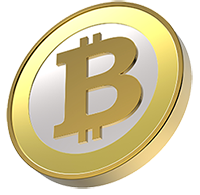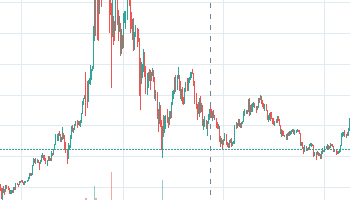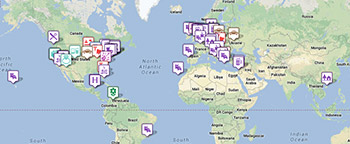Everything a novice needs to know about bitcoin - from how to buy it, which wallet to choose, and where to get your bitcoin news.
Investing in bitcoin can definitely be intimidating, if not seem altogether laughable at times. Especially for those of us that aren’t tech-savvy and have never spent time on Wall Street. However, bitcoin is arguably one of the most accessible investments that everyday folks can make. All you need is internet access, some money, and a little bit of know-how.
The hardest part about owning and trading bitcoin for any new user, whether you’re a seasoned investor, or completely new to stocks and trading, is learning how to read and interact with bitcoin price and technical market analyses. Luckily for all of us, sites like Bitcoin News regularly break these concepts down into bite-size pieces that are time relevant. So really- with that internet connection we talked about, you’ve got roughly zero reasons left to not get started.
Which Wallet to Choose
Choosing the right wallet, or wallets, is the first step into getting in on the cryptocurrency game. In order to purchase bitcoin, you’ll have to have a wallet to send it to. As bitcoin isn't a physical currency, you can’t just put it into your pocket. So you need a specific holding place- either hardware or software- to put those freshly bought coins into. There are two main “storage options” when it comes to wallets, and it’s suggested that you have one of each.
Hot Storage
Hot storage is a type of wallet that is connected to the internet. This type of storage is ideal for people who want instant access to their funds, in order to trade or sell them quickly. Users should only put the number of bitcoins they’re planning on using into hot storage, and only the amount they need. Hot storage works similar to cash, you’ll have quick access to your bitcoin, but so will thieves. Hot storage is secure, but not secure enough to leave large sums in for long periods of time.
Cold Storage
Cold storage is a type of wallet that isn’t connected to the internet. These wallets work a bit like savings accounts- this is where you should put the bulk of your bitcoins until you plan on using them. If you know how much you’ll need to use, you can transfer your coins from a cold wallet to a hot one as needed.
There are a few different types of wallets, some work as cold storage, others work as hot, and some work as both.
Hardware Wallets
Hardware wallets are generally considered cold storage, but some can be connected to online environments with you need them. These wallets are considered the safest way to store bitcoins and are generally separate devices from your computer or phone (like a USB or external hard drive).
Desktop/Hosted/Online/Mobile Wallets
These wallets are super popular, but nowhere near as safe as hardware wallets. These are all types of hot storage, and your bitcoin balance is constantly connected to the internet. The upside to these wallets is that you can access them from anywhere via a computer or your mobile phone.
Paper Wallets
Both safe and unsafe, paper wallets are the classic cold only storage. They are quite literally just a piece of paper. Users write down their personal and public keys (basically access codes in and out of your wallet) and then place that piece of paper in a safe spot. These wallets are impossible to hack, but can easily become misplaced.
How to Buy Bitcoin
Buying bitcoin is actually super simple. There are a few different ways to go about it, each with their own unique set of pros and cons, depending on how you plan to use or store your bitcoin later. You may need some identifying documents, like a driver’s license or social security number for U.S. folks. Things like this depend heavily on local legislation.
Bitcoin Exchanges
Similar to the exchanges that are familiar to any stock trader, bitcoin exchanges do just that- they exchange bitcoin for fiat currencies. And not just bitcoin, most exchanges will deal in a number of different cryptocurrencies, so you can pick and choose the one you like best, or buy a few different cryptos and play the field.
Big-name bitcoin exchanges like Bitfinex, Coinbase, and Binance offer strict adherence to local and national regulatory measures, high levels of security, and a venue to freely trade your coins. However, some users question the anonymity afforded to them when they use large exchanges to purchase their crypto. Bitcoin exchanges offer super-fast transactions because the third party essentially pays out the money and the bitcoin while the transaction processes.
Peer-to-Peer Exchanges
Peer-to-peer (P2P) exchanges work by directly connecting users that will exchange bitcoin for fiat. This is also known as a “decentralized exchange” as there is no mediating authority in these types of transactions. Often, they work similarly to classifieds, as one user will state they have bitcoin for sale and offer their price point, and other users can connect them and either negotiate or purchase the coin outright.
The advantage of P2P exchanges varies for each user, but higher levels of anonymity, little to no regulatory oversight, and low to no fees are some of the top reasons people choose P2P exchanges over corporatized ones. Security is often better with P2P exchanges purely because the exchange never holds cash or coins for its users, as it’s simply a platform that connects those in need.
Bitcoin ATMs
Bitcoin ATMs are incredibly popular among users who are security-minded, KYC adverse, and generally tech-savvy. Bitcoin ATMs completely remove any other party from purchasing bitcoin, as fiat is deposited into the machines, and the newly purchased bitcoin is deposited directly into the user’s secure wallets.
While this avenue of purchase is gaining traction, bitcoin ATMs can’t be found everywhere. So access to them might be a prohibiting factor. Other users want to be a part of exchanges for continued trading opportunities.



 Updated every 10 minutes
Updated every 10 minutes


